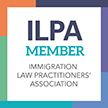Students are normally expected to undertake their studies in the UK (see above). However, in light of the Covid-19 pandemic, a number of ‘Coronavirus Concessions’ have been published:
- Applicants who began a course of 12 months or less in 2020 or Spring 2021 via distance learning, and who had not previously entered the UK to study that course will be able to make a Graduate application if they made a successful Student visa application and arrived in the UK either before their visa ends or by 27 September 2021, whichever is sooner.
- Applicants who began a course of 12 months or less in 2020 or 2021 who already have existing permission as a Student to study that course, and who have already travelled to the UK during that period of permission, will be able to make a Graduate application as long as they are present in the UK before the end date of their permission.
- Applicants who commence a course of 12 months or less in Autumn 2021 or Spring 2022 via distance learning from overseas must enter the UK no later than 6 April 2022 and complete that course of study in the UK with permission as a Student to be eligible for the Graduate Route. The current UKVI guidance states that students should travel to the UK once they are able to do so.
- Applicants sponsored for a course lasting longer than 12 months will not be prevented from being eligible for the Graduate route as a result of any distance learning that took place either in the UK or overseas between the period of 24 January 2020 and 27 September 2021 or any distance learning which took place overseas between 27 September 2021 and 6 April 2022. If a Student’s current permission expires prior to 6 April 2022, they must enter the UK prior to the expiry of their Student permission rather than 6 April 2022.
